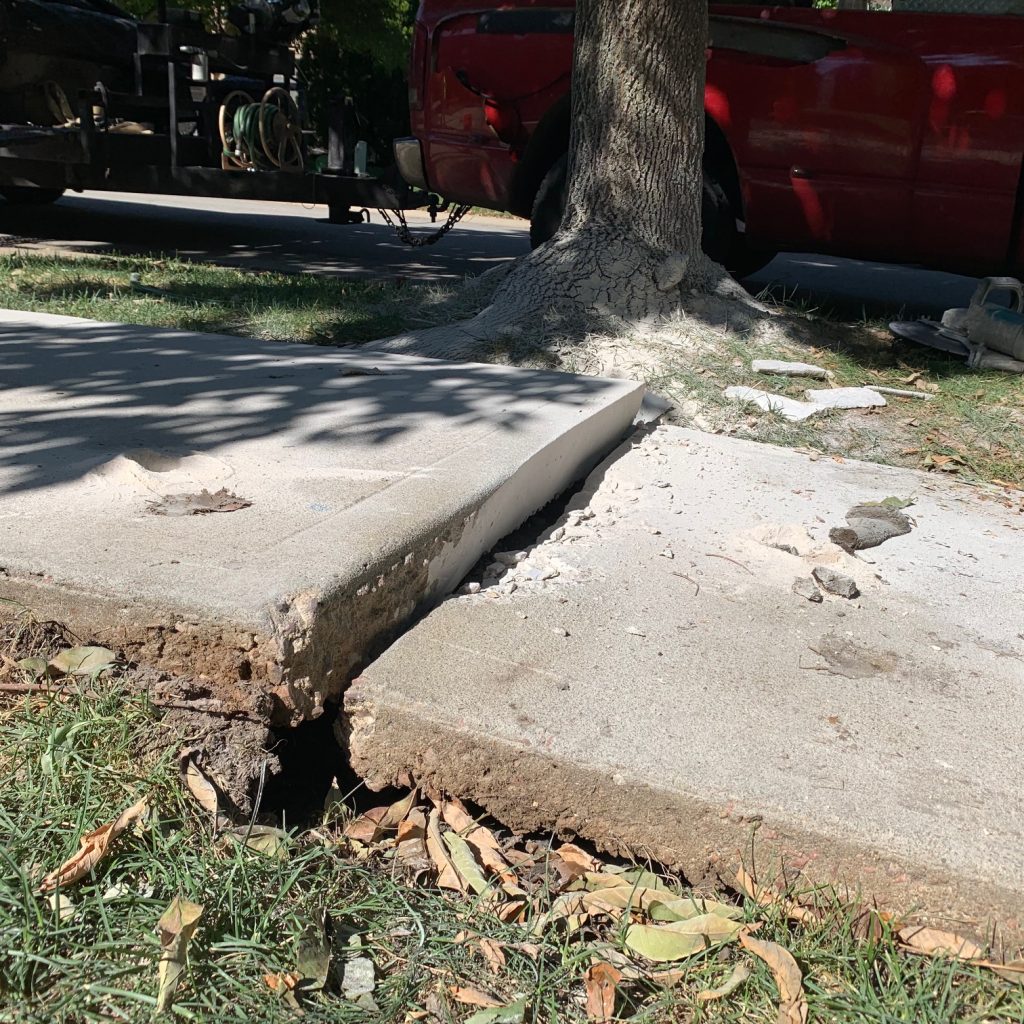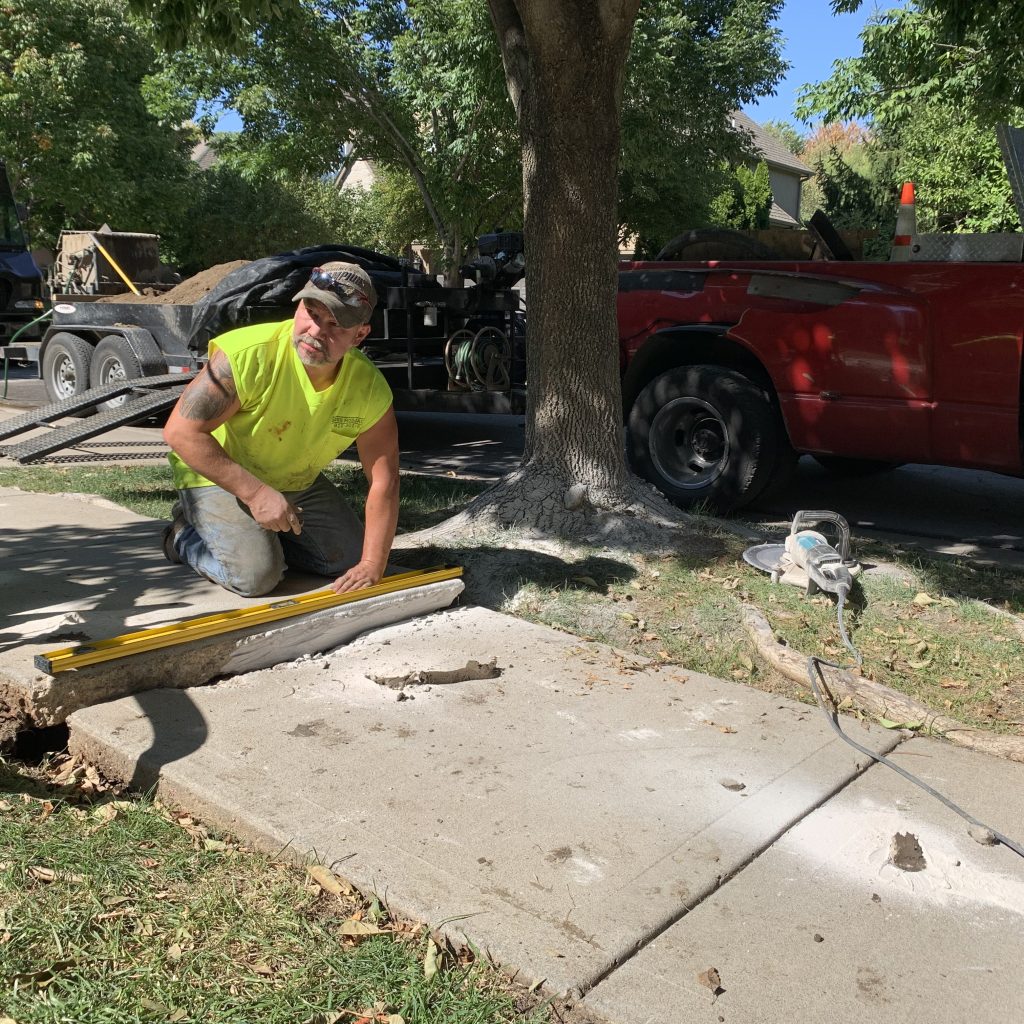Why is My Driveway Sinking Next to My Garage
Have you ever noticed that your driveway has dropped in front of your garage? It’s an issue that many homeowners face, and it can be quite frustrating. The good news is that this problem is not uncommon, and there are several reasons why it might be happening.
In this article, we’ll explore the most common causes of driveway sinking and what you can do to prevent it from happening in the future.
Common Causes of Sinking Concrete:
Soil Erosion:
Soil erosion is one of the most common causes of driveway sinking. When the soil beneath your driveway begins to erode, it can leave a significant void underneath that can cause the concrete to sink and crack. This is often due to poor drainage or improper grading that allows water to flow under the concrete, loosening and eventually washing away the soil, but can also be caused by extreme weather patterns such as a drought. Without the support from the ground underneath, the entire weight of your concrete driveway is left to be held up by the rebar within the concrete, which can eventually cause this cracking and signature drop where it meets your garage.
Poor Soil Compaction:
When a driveway is constructed, the soil beneath it must be properly prepared to provide a solid foundation for the driveway. If the soil beneath your driveway was not properly compacted during construction, it can lead to sinking and cracking over time as the soil settles further and creates a void.
One of the advantages of mud jacking is that the mixture of concrete and mud is pumped at a high PSI (pounds per square inch) rating. This means that the mixture can be pumped with enough force to fill the voids and finish compacting the soil beneath the slab. This high-pressure injection of the mud and concrete mixture then creates a strong and stable base that can support the full weight of the concrete slab, allowing for a long-term solution that is backed by Boss’s industry-leading 5-year warranty.
Heavy Vehicles:
If you have heavy vehicles, such as an RV or a large truck, parked on your driveway regularly, it can cause the concrete to sink and crack over time. The weight of these vehicles can be too much for the driveway to handle, especially in conjunction with other issues like soil erosion, causing it to eventually weaken and sink.
Tree Roots:

Tree roots can also be a very common cause of driveway sinking. When trees or shrubs are planted too close to a driveway, their roots can grow and spread underneath the concrete. As the roots grow, they can exert pressure on the concrete, causing it to crack, buckle or even lift.
Tree roots can be particularly problematic for driveways because they have a powerful and extensive root system that can spread over a large area. Roots can cause significant damage to the driveway, making it unsafe and unsightly.
Poor Drainage:
Poor drainage can cause water to accumulate under your driveway, which can cause the soil to erode and the concrete to sink. This can happen if your driveway was not properly sloped during construction, the grading is not properly planned, or if there are clogged drainage systems.
Preventing Driveway Sinking:
Fill in Any Gaps or Cracks:
If there are any gaps or cracks in your driveway, fill them in as soon as possible. This can help prevent water from seeping underneath the driveway and causing further damage.
Address Drainage Issues:
Ensure that all drainage from your gutters are directed away from your home and driveway to prevent moisture intrusion and soil erosion. If the driveway is located in a low-lying area or an area prone to heavy rainfall, it may be necessary to adjust the nearby grading, or install a drainage system such as French drains or catch basins, to prevent water from flowing toward your driveway.
Avoid Heavy Vehicles:
Try to avoid parking heavy vehicles on your driveway regularly. This will help prevent the concrete from sinking and cracking over time from the extra weight.
Tree Maintenance:

Make sure to regularly maintain any trees planted near your driveway to prevent their roots from growing under the concrete. If possible, limit the size and number of trees (and shrubs) close to your driveway and other concrete.
Consider Mudjacking:
If your driveway has already sunk significantly, you may want to consider having your driveway professionally lifted. This involves pumping a mixture of concrete and mud into the void beneath the driveway through a series of small holes, to fully fill that space, lifting and supporting the driveway for many years to come.
Driveway sinking can be a frustrating and costly problem to deal with. However, by understanding the most common causes of driveway sinking and taking preventative measures, you can help ensure that your driveway remains stable and safe for years to come. If you do notice any signs of sinking or cracking, it’s important to address the issue as soon as possible to prevent further damage.


